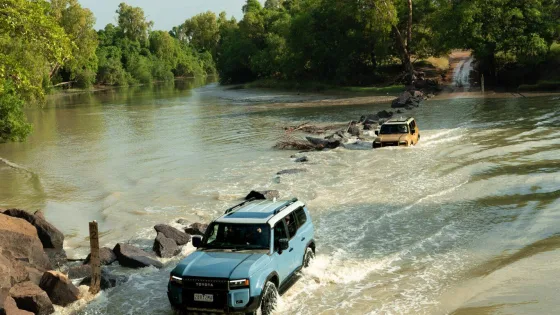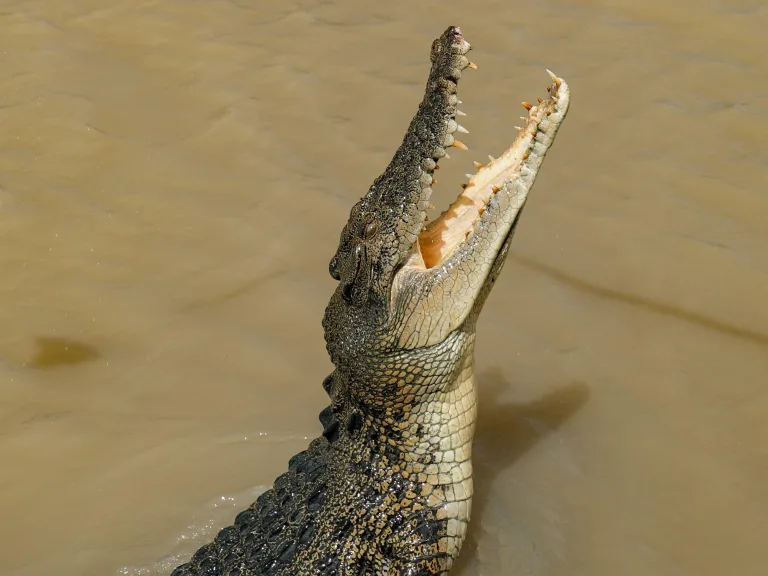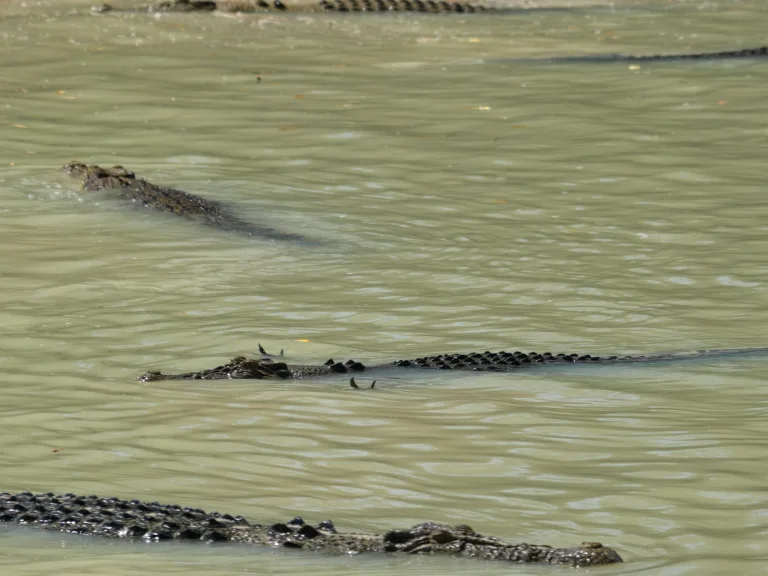A Front-Row Seat to Crocodile Country
The specially designed viewing platforms at Cahills Crossing offer a safe and elevated perspective over a notorious causeway where dozens of estuarine crocodiles (Crocodylus porosus) gather to hunt. These powerful predators — the largest reptiles on Earth — are drawn here by the tides, feeding on mullet and barramundi swept over the road that leads into Arnhem Land.
Linked by a scenic rainforest walk, the site features three viewing platforms and a picnic area, making it the perfect place to pause, relax, and experience a breathtaking natural spectacle.
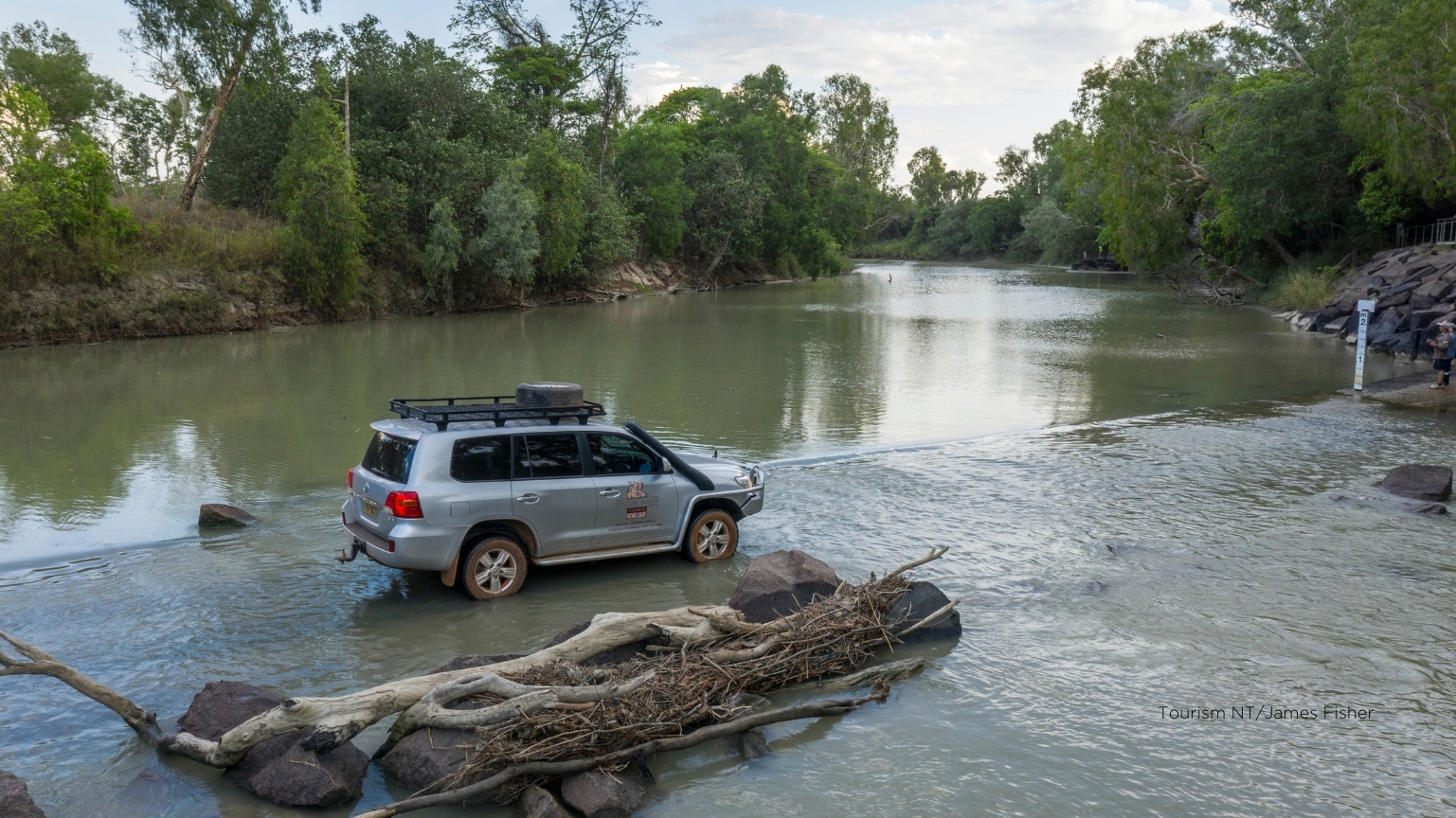
When to Go: Dry Season Drama
The best time to visit Cahills Crossing is during the late dry season — from July to November, with peak crocodile activity often seen in September and October. This seasonal congregation occurs during wurrkeng and kurrung, when surrounding floodplains dry up and fish become concentrated in the East Alligator River.
At the right time, you might witness 50 or more crocodiles within a 400-metre stretch of river — a remarkable increase from the usual 5–9 crocs per kilometre. This dramatic density is all about the tides and the fish. As large tides roll in, they bring muddy water and prey upstream, triggering a feeding frenzy you won’t forget.
Come the wet season, the show winds down. As rain returns and water levels rise, crocodiles disperse to other hunting grounds, and only a few remain around the crossing.
Legends of the Crossing
Keep an eye out for some of the park’s famous “identity crocodiles” — well-known individuals respected by Traditional Owners and rangers alike. These crocs have been observed travelling up to 140 km to other river systems in search of seasonal feeding opportunities.
Stay Safe and Respect Country
Cahills Crossing is not just a wildlife hotspot — it’s a place of deep cultural significance. Saltwater crocodiles are central to the beliefs and traditions of Kakadu’s Traditional Owners. Please observe respectfully:
- Stay well back from the water’s edge
- Never cross the causeway on foot
- Use the viewing platforms provided
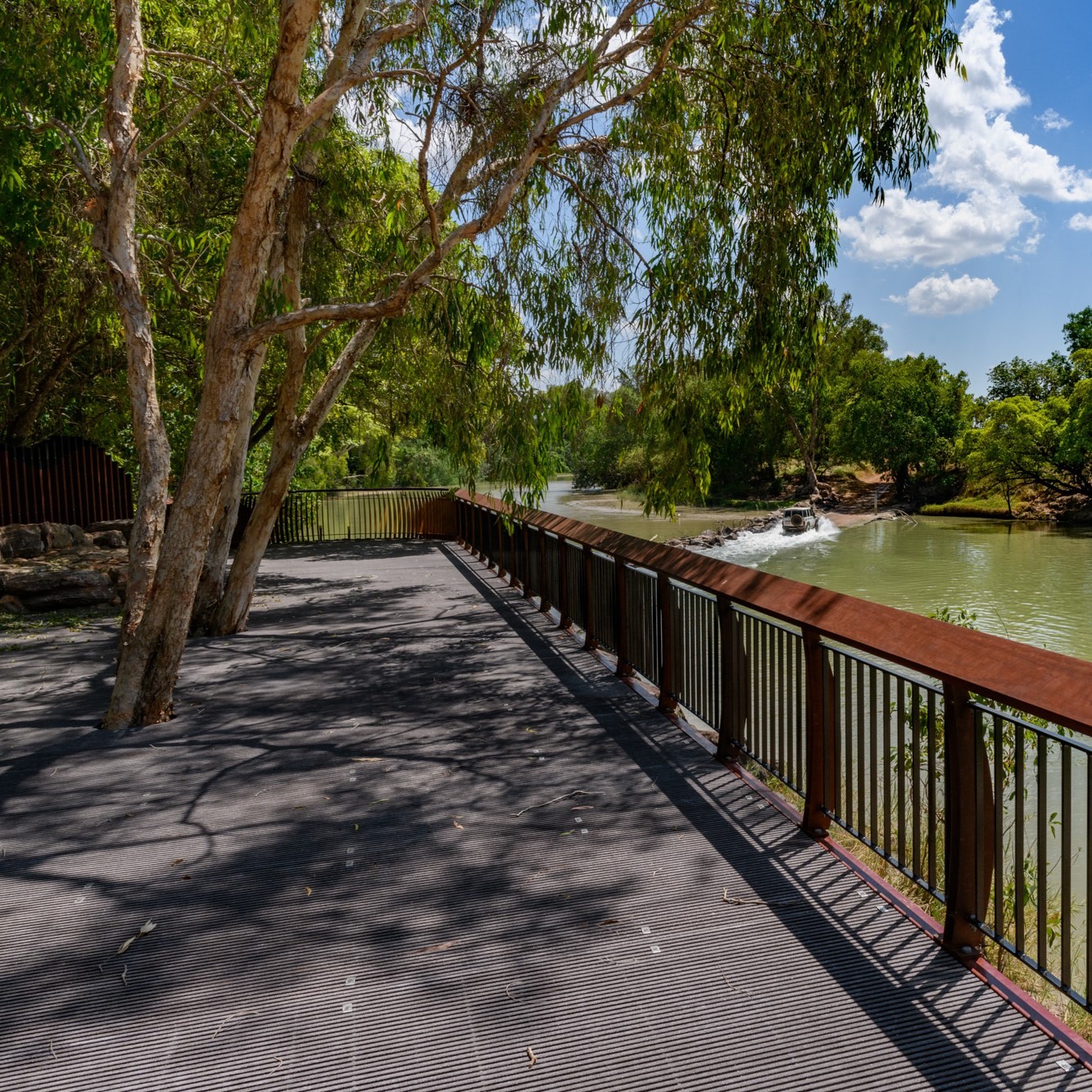
Check Conditions Before You Go
For the best experience, check tide times before you go.
Staff at the Bowali Visitor Centre can help, or use online tools such as:
Whether you’re here for the thrill of seeing Kakadu’s fiercest predators or to enjoy the serenity of the surrounding rainforest, Cahills Crossing offers one of the most unforgettable wildlife moments in the Top End.
